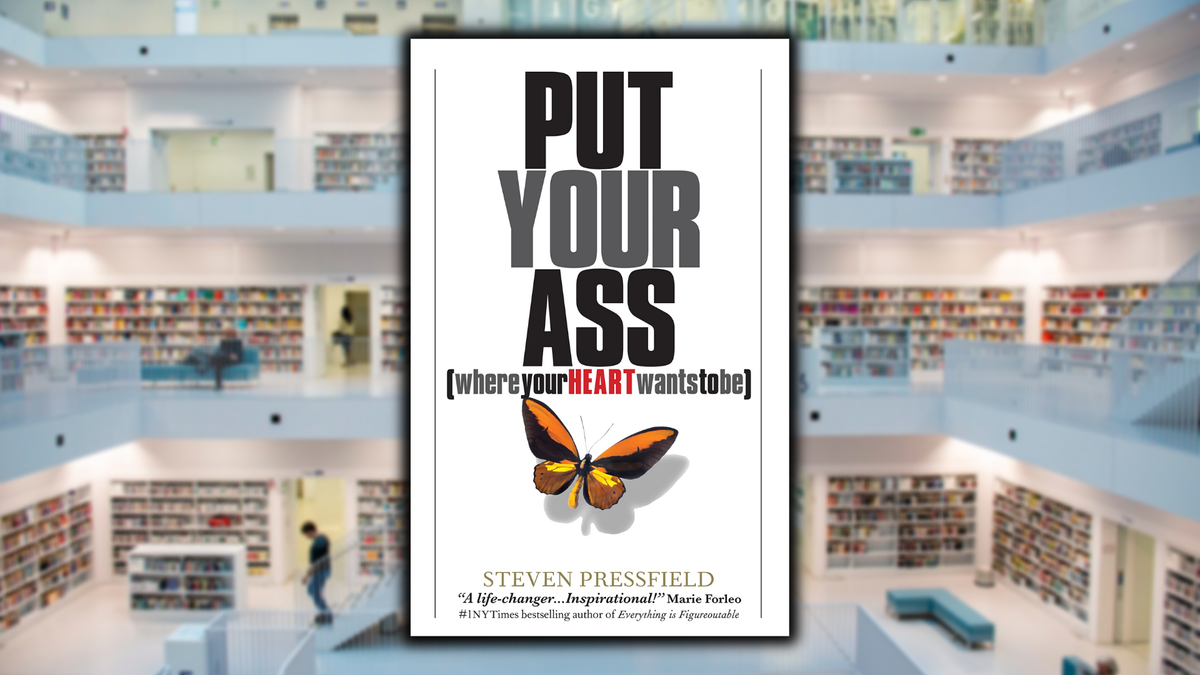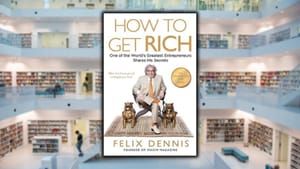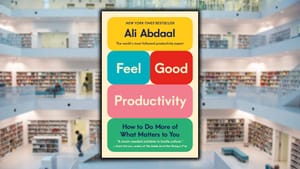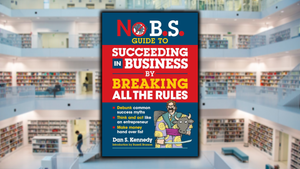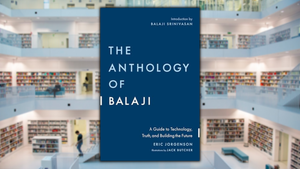
This Book is For:
*Everyone with a creative calling to pursue, and who wants to receive expert guidance from one of the world's most experienced guides with respect to what it actually takes to make one's artistic visions a reality.
*Anyone who is struggling with motivation or procrastination when it comes to doing creative work, and who wants to go deeper into the core reasons why that is, and how they can overcome it.
*Artists and creatives of all persuasions and mediums who want to learn on-the-ground tactics for getting in the door, surrounding themselves with the right people who can help them, and accelerate their careers.
*People who know deep within themselves that they are meant for more, that they have what it takes to create spectacular art at a high level, and who are willing to do whatever it takes to get there.
Summary:
“When we say, ‘Put your ass where your heart wants to be,’ we mean station your physical body in the spot where your dream-work will and must happen. Want to write? Sit down at the keyboard. Wanna paint? Step up before the easel. Dance? Get your butt into the rehearsal studio. Dumb and obvious as it sounds, tremendous power lies in this simple physical action.”
-Steven Pressfield, Put Your Ass Where Your Heart Wants to Be
Steven Pressfield is essentially the patron saint of artists and creatives everywhere, and this book is a wonderful exhortation toward greater commitment to one’s chosen craft, and a call to go “all-in” on your creative endeavors.
Pressfield just gets it; he’s been there, and after one hell of his own hero’s journey, he’s returned to show us how to “make it” as well.
He understands people like you and me. And personally, having worked and slaved away in obscurity for years – reading in my car while working security overnight, writing whenever I could while doing the same thing at hospitals – reading this book feels like a vindication.
If I had read it – if it had existed – before my own decade-long struggle against the Resistance, as Pressfield calls it, I would have been even more confident about my eventual overcoming. If you're still stuck in the depths of fear, self-doubt, procrastination, and perfectionism, however, then this book could really help you.
At the core level, it’s a book about giving up everything for a dream, and about why doing something “crazy” like that can make life worth living, at least for a certain type of person. You might be that type of person, and if you are, you’re going to feel seen while reading this book as well.
One of my favorite of Pressfield’s ideas (really, a belief, a strong, inner conviction of his) is that your creative work already exists on a separate, higher plane of existence. Your masterwork already exists in uncreated form, and it’s your job, your task, your duty, to devote yourself to making it real in this world.
You see, the Muse has to be able to find you if She’s going to be able to give you inspiration.
You need to be somewhere, every day, at the same time, committed to the same task, so the Muse can show up and guide you to your highest artistic peak. You need to put your ass where your heart wants to be, in Pressfield’s phrasing.
Throughout the book, he blends the practical and the metaphysical in a way that’s just…awesome…and if you believe that you have something great inside of you but aren’t sure how to access it, then you need to read this book.

Key Ideas:
#1: Move to Where Your Dreams are Most Likely to Come True
“Leave the town or city where you live and move to the hub of the creative or entrepreneurial world where your dreams are most likely to come true. Let me repeat that. Pack up your total establishment – spouse, kids, dog, couch, treadmill – and move to the metropolis that’s the epicenter of your career or creative dream.
Yes, I know we can all work remotely. Zoom will put our faces before potential friends, mentors, and collaborators without us leaving the comfort of our homes. But it ain’t the same as being there. Someone may ask, ‘I want to work in country music. Do I have to move to Nashville?’ Or ‘My dream is to act in movies. Do I have to pack up for LA?’ Yes and yes.”
This right here constitutes the thrust of the whole book - Pressfield's main argument. And it's a persuasive one, coming from the man whose entire life is a testament to the power of commitment and the necessity of proving to the world - to yourself, to others, and to the "Muse" - that you really want it. That you are all in.
Packing up all your shit and placing yourself in the middle of the creative action sends a message to the universe that you are willing to do whatever it takes to be successful.
It tells the doubters and the people who aren't yet convinced of your sincerity that you mean business and that you're serious.
It separates you from the pretenders and the passive dreamers.
Any book lover can tell you that words are powerful, but compared to actions?
Actions make up the difference between the dreamers and the doers, between the winners and the also-rans. Plenty of people say they want to be successful, but when you look at what they're actually doing to get there, you see that they're deluding themselves, that they're not really all that serious at all.
One of the main reasons why this kind of bold, radical action is so important is that potential mentors and guides along your path to mastery are only going to take notice if they can see you moving. They need evidence - strong, action-based evidence - that you're not just wasting their time.
“When you move your material ass to the geographic site of your dream, your peers and potential mentors think at once, This person is serious. She has committed. She has burned the boats. She is one of us.
Remember, the potential colleagues and decision-makers who can open doors for you…they’ve already moved to Austin or Nashville or wherever the action in their/your field is hottest. They’ve moved to these places because they’re serious. Because they’re committed.
Yes, technically, you can audition via Zoom or send in your demo from fifteen hundred miles away, but you and your submission will not be considered as serious. You will be perceived as half-in/half-out, as a part-timer and a dilettante.”
#2: Actualize What is Presently Only Potential
“You too have a body of work. It exists inside you, on the Plane of Potentiality. Are you a writer? This body of work exists, like books on a bookshelf. Close your eyes. You can see them.
Are you a musician? These works exist like albums, like concerts, like performances. Listen with your inner ear. You can hear them.
These bodies of work exist as alternative futures. They are that which can be…and should be…and want to be. But they are not that which is guaranteed to be.”
Steven Pressfield is in touch with the metaphysical. He exudes the kind of force that can only be perceived surrounding people who have actually spoken to and communed with the Muse. It's almost like he possesses secret knowledge, and that secret knowledge is being communicated in this book.
Whether or not you believe in the physical, material reality of this other plane of existence - this Plane of Potentiality - you can see that as yet, our highest artistic achievements remain unrealized. They don't exist yet.
Indeed, they won't exist, unless we make them real; if we bring them down to earth. This is our calling as artists and creatives.
Your best work already exists somewhere, and the world - this world - would be unquestionably better off if it existed here, but this will never happen by accident.
You have to make it happen, you have to will it to happen, you have to give everything you have for it, and you are the only one in the whole universe who can do it. Because that creative work is yours alone, and literally no one else is capable of producing anything like it.
These works exist in the adjacent possible, which is located just beyond what exists in the here and now. As you move forward, you create the path by walking, and your next step makes future steps possible.
This is the most exciting thing!
Crucially, however, where others shy away from their freedom and responsibility to create, you and I need to lean into it. We can never escape the responsibility to exercise our freedom, as the existentialists might say, but we can create our own reality.
Maybe we can't bend external circumstances completely to our will, but we have a great deal more power and influence than we think we do, and we can tap into this power by acting as if; by envisioning our highest artistic contribution as a vivid reality, and by acting in accordance with the belief that we will eventually make it real through our work and our actions.
We can use the uniquely human power of the imagination to help will our creative work into existence, and this is what Steven Pressfield says we must do as artists:
“What fascinates me about the character of Alexander the Great is that he seemed to see the future with such clarity and such intensity as to make it virtually impossible that it would not come true – and that he would be the one to make it so.
That’s you and me at the inception of any creative project. The book/screenplay/non-profit/startup already exists in the Other World. Your job and mine is to bring it forth in this one.”
#3: But What If We Have Other Responsibilities?
“Can we put our ass where our heart wants to be if we’ve got a family, a job, a mortgage? Yes. The Muse does not count hours. She counts commitment. It is possible to be one hundred percent committed ten percent of the time. The goddess understands.”
In his riveting memoir, Govt Cheese, Steven Pressfield relates the story of how he spent two years in a secluded house in the middle of nowhere, during which time he earnestly believed that he was either going to finish his first book or literally die trying.
This was the path he chose - the way of total, all-in, life-or-death commitment - but it doesn't have to be your path. You don't have to give everything for your dream. That's the way he did it, but it's not everyone's destiny.
No one expects you to renounce everything and move to a cave in the middle of nowhere to complete your masterwork - like some tortured artist besieged by the demands of their art. That's just a movie. You might have a life outside of your art! Maybe you have work tomorrow! You might need to drive your kids to school! You don't have to give these things up in a misguided attempt to emulate the "true artist."
Instead, what Pressfield is saying here has to do with the quality of your commitment, rather than just its quantity.
Are you intentional about the place your art has in your life? Are you willing to take a realistic look at how much time you actually have available, and then make a commitment to give your absolute best during that specific amount of time?
Speaking for myself, I would love to be a world champion bodybuilder, maybe even a top fitness model. But at this time in my life, I'm just not willing to do what it takes. It's not that I wouldn't be able to perform that much hard work. It's just that I realize the sheer volume of hours per week required to reach a goal like that, and I can tell with simple math that, with all my other commitments and desires, I just can't commit to putting in that much time.
There's too much else that I want to do with my life!
To quote Claude Monet, the painter:
"Every day I discover more and more beautiful things. It's enough to drive one mad. I have such a desire to do everything. My head is bursting with it."
That quote nails it! And so, seeing that this is the case, what can you and I do?
Although it's true that we can usually make time for what truly matters, it's entirely possible that you only have an hour (or even less) per day to pursue your artistic vision. In that case, while you're there working, really be there.
Put forth your absolute best effort; put your total being towards the realization of that vision you have for your life and your art. Your creative calling demands nothing less from you.
#4: The Goddess Wants to Know Where and When She Can Find You
“The goddess doesn’t just want to know where we are. She wants to know what time we start and at what hour we finish. How can she come to our aid if she doesn’t know where and when to find us?”
To gain the assistance of the "gods," we first need to show up. Replace "gods" with "luck," "the universe," "probability," or whatever else, but the fact remains: discipline, routine, and focus will take you where you need to go.
And sometimes, where you need to go is straight to your writing chair, painting easel, dance studio, squat rack, or workshop.
You need to be in the same place, at the same time, exhibiting the same high level of commitment to your chosen craft - you can't let up for even a single day, or even a moment.
Once you're there, you need to really be there.
You need to say, aloud or to yourself: "This is the level of effort I've committed to. This is where I said I would be. And this is when I said that I would be there."
As Stephen King put it:
"The closed door is your way of telling the world and yourself that you mean business."
#5: Put Your Ass at the Highest Possible Level
“What would it be like to train as a quarterback beside Tom Brady? How hard would we have to work to practice alongside Steph Curry? How would we feel submitting our manuscript to Maxwell Perkins, who edited Hemingway and Scott Fitzgerald? When we say, ‘Put your ass,’ we mean put it at the highest possible level.”
Once again, how you apply the above quote depends on what you want from your art, and what you're willing to give to it.
If your aim is simply to give writing a shot because you think it'll be fun to write a novel, then you don't have to agonize over submitting a manuscript to someone like Maxwell Perkins. You can just write the damn thing, enjoy the process, and see where it leads.
But if you say that you want to be a Great Artist, well...then that's different!
Myself, I love hearing that people have adopted these kinds of grand ambitions for themselves. After they tell me about their dreams, I'm on their side. I'm going to support them until they make it, and I want them to make it. I want them to commit and persevere, and to give everything they have within them in order to make their dreams a reality.
But these words need to be backed by actions. Significant actions. So, after making these kinds of statements, you really do have to ask yourself, "Am I actually willing to do what it takes to perform at such an elite level?"
Because when you look at what these professionals are doing, what kind of effort they're putting in, and what they're willing to do in order to succeed, you suddenly find that you have nowhere to hide. You're either committing at the same level, or you're not doing enough.
#6: Move to Your Self
“Every chapter in this book leads to one final aspiration. Blow off your ego. Move to your Self.”
Let's get metaphysical! Steve puts forth these ideas much more eloquently than I can at the moment, but the basic message is that ego-driven art is the worst, most amateurish, most derivative kind of art. It's the kind of art that doesn't really connect with anyone. And that's because it's all about "me," or "the ego."
Conversely, the best, most enduring forms of art transcend the limited ego and express the effortless perfection of the Self, the grand unifying structure of the universe that we're all experiencing and that we're all a part of.
Art that connects with people, that moves their hearts and minds and souls, is selfless but is a manifestation of the Self. It represents who we really are; it represents the interconnected nature of all beings, and what we share in common. It doesn't seek to glorify the separate ego and reinforce division or disharmony. All Art is a way back to the Self which we are.
That's not to say that you can't be proud of your work! You absolutely can!
It's just that the purpose of art is to say something about existence and the fundamental nature of reality that we can't say in any other way. Existence is relationship, and relationships are give-and-take, gift and receiver, self and other.
One quote here from Alan Watts, and then I'm going to close out this section with an essential quote from Steven Pressfield. First, Alan Watts:
"You are something that the universe is 'doing,' in the same way that a wave is something that the whole ocean is doing."
And now Pressfield:
“The Self believes that death is an illusion. The soul is immortal, and the plane upon which it exists is indestructible. Nothing can harm or destroy the Self. The Self believes that time and space are not real. The gods travel ‘swift as thought.’
The Self believes that all beings are one and are bound to one another inextricably. The Self believes that if one being harms another, that being immediately experiences that harm to itself.
Because the Self believes/knows that all beings are interconnected, the Self acts out of care and concern for others. The primary emotion of the Self is love.”

Book Notes:
“Magic happens when we put our ass in the same space with other dreamers who have already out their asses there.”
“All that matters is that she has taken action. She is here. She has left there behind. This does not go unnoticed, by mortals or by the gods.”
“Until one is committed, there is hesitancy, the chance to draw back, always ineffectiveness.
Concerning all acts of initiative (and creation), there is one elementary truth the ignorance of which kills countless ideas and splendid plans: that the moment one definitely commits oneself, then providence moves too.
A whole stream of events issues from the decision, raising in one’s favor all manner of unforeseen incidents, meetings and material assistance, which no man could have dreamt would have come his way.
I have learned a deep respect for one of Goethe’s couplets: ‘Whatever you can do or dream you can, begin it. Boldness has genius, power and magic in it. Begin it now.’”
-W.H. Murray
“Can you put your ass where your heart wants to be for life?”
“Leave your ego, leave your greed, leave your competitiveness with your comrades, leave your lust for glory and your fear and your self-doubt and your lack of belief in yourself. Leave everything but your will to victory.”
“Putting our ass where our heart wants to be is the equivalent of Alexander charging into the breach at the Granicus River or at Issus or Gaugamela. We too are risking all. We too hold nothing back. We too have hurled ourselves headlong into the unknown. Heaven sees this. The Muse knows.
You, the stand-up comic, suddenly find yourself entering areas of politics or sex you never thought you could. You, the screenwriter, discover your two-person love story expanding into a multi-generational epic. You, the dancer, the third baseman, the wide receiver, find you can play through that plantar fasciitis or that tweaked hamstring. I believe heaven notices. The universe is not indifferent.”
“Did the Marine Corps issue you ‘feelings’? Then you ain’t got none! Shut up and get back to work!”
“Self-reinforcement is a superpower. It may seem silly when it’s enacted in the moment – some crazy waitress/actress talking to herself in her Honda at a stop light. But in fact, that young lady has put her ass where her heart wants to be…and she has found the self-talk and self-validation to keep it there.”
“If the artist’s skill is the ability to open the pipeline from the ego to the Self – and it is – then ‘Put your ass where your heart wants to be’ means exactly that. Seat your identity not in the ego, but in the Self.”
“Our priorities change when we make the shift from the ego to the Self. Our field of consciousness broadens. We see ourselves no longer as an isolated element in a random or meaningless universe.
Instead, our passage through this material dimension acquires significance, even if we can’t articulate what that significance is.
We sense ourselves as part of a greater cosmos, extending without limit into the past and projecting infinitely into the future. We become conscious of our own gift. We no longer doubt this or dismiss it or despise it. Instead, we resolve to serve it.
We may still fear personal extinction. We may still worry about our children’s futures and the health of our community and nation and planet. But we come at these concerns from a different place and with a different sense of what kind of difference we can make and how and why, or even if we wish to attempt to make a difference at all.
We have become artists, not in the precious sense of differentiating ourselves from others in some imagined superior way, but in the sense of being servants of an intention that comes from somewhere else, even though we cannot grasp what that intention is or what its source may be.
We trust this intention somehow, even though we can’t say why. It is no small thing to put your ass where your heart wants to be. Can you do it? Do you want to? Are you willing to pay the price?”

Important Insights from Related Books:
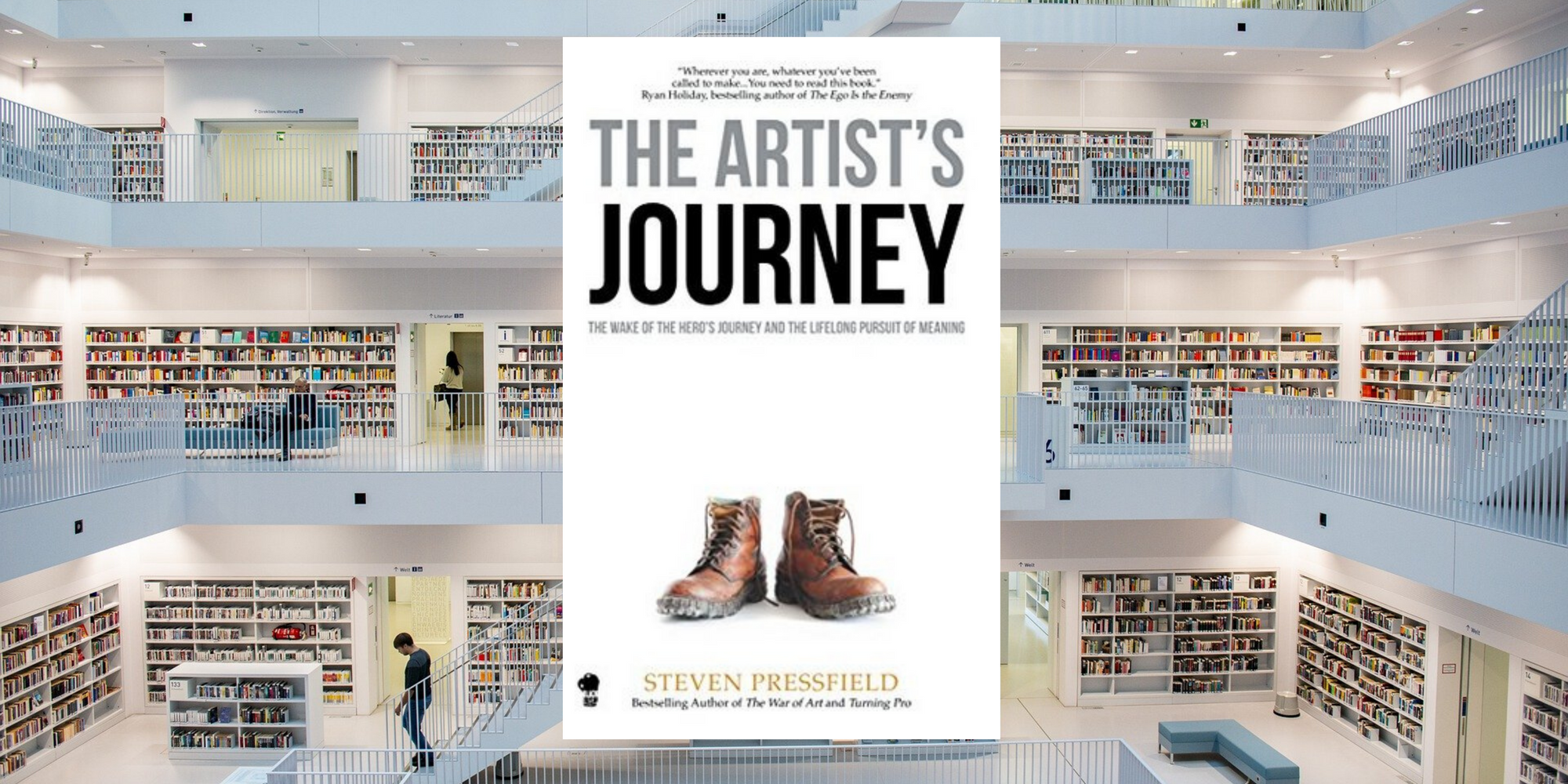
The Artist's Journey, by Steven Pressfield:
Ready or not, you are called. Being a creative - a writer, painter, sculptor, choreographer, builder, or something else entirely - means that you have an artist's journey. It means that there is something specific to you, something concrete, something that only you are able to create, and if you don't create it, no one else will.
The artist's journey is not something you can just ignore and hope it goes away, either. Oh you can try and suppress it, but you will know - somewhere, you will know - that you are living a lie.
You can think of the artist's journey as almost like software in your head, demanding to be lived out in real life. In short, life "wants" you to become a hero, and you will experience some severe cognitive dissonance if you don't recognize this impulse and act on it.
If this sounds like just the challenge you've been looking for, the Artist's Journey is waiting.
Sample Quotes from the Book:
“On our hero’s journey, we acquire a history that is ours alone. It's a secret history, a private history, a personal history. No one has it but us. No one knows it but us. This secret history is the most valuable possession we hold, or ever will hold. We will draw upon it for the rest of our lives."
“Everything that has happened to us up until this point is a rehearsal for us to act, now, as our true self and to find and speak in our true voice. The artist's journey is the process of self-discovery that follows. It will last as long as we're alive, and maybe longer."
“If mankind is indeed on a collective hero's journey, then Creation itself is on our side."
Read the Full Breakdown: The Artist's Journey, by Steven Pressfield
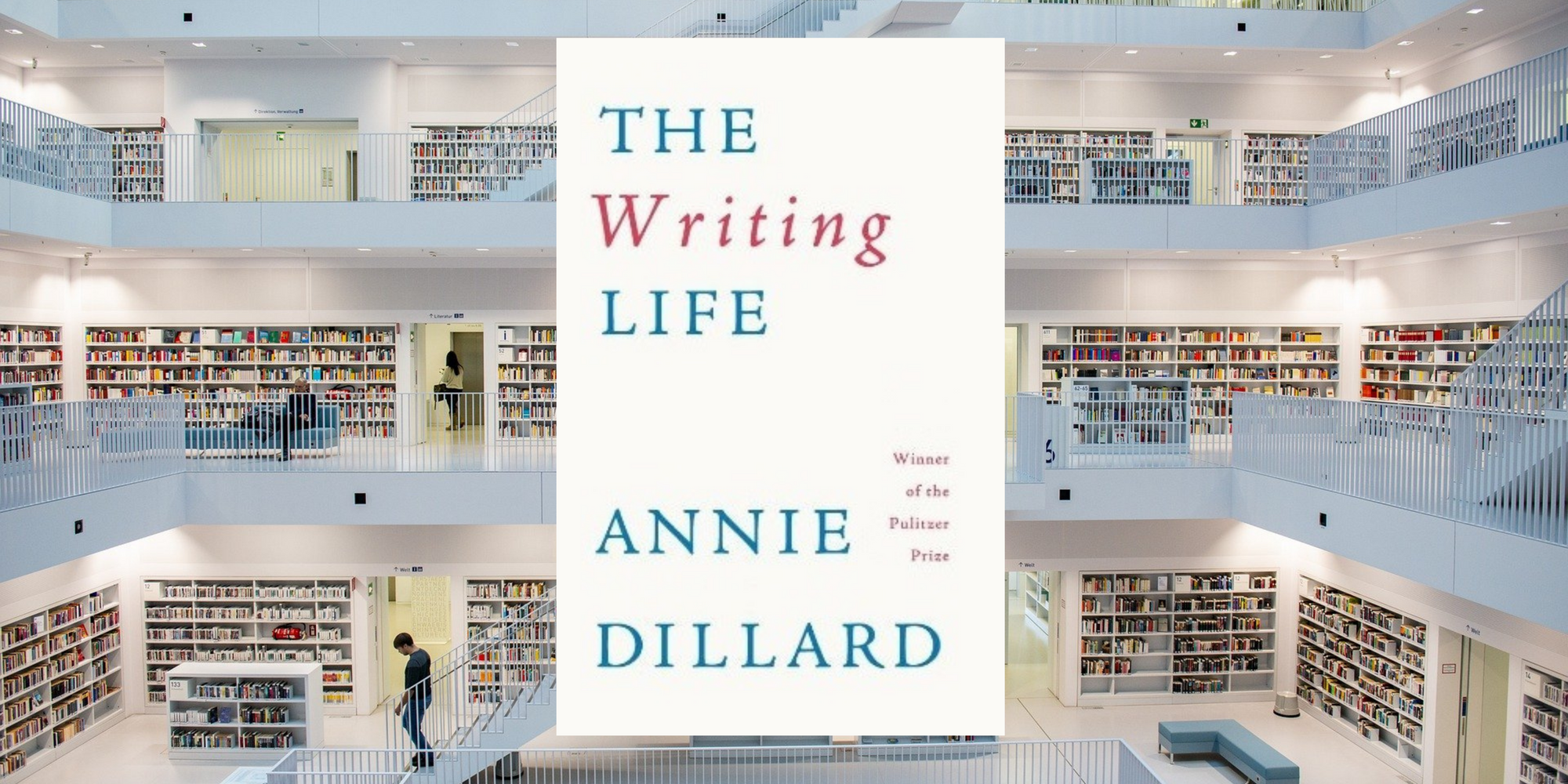
The Writing Life, by Annie Dillard:
You can finish this book in just a few hours (it’s only about 90 pages long) and if you’re a writer, or you think you might want to be one, it will stay with you for a very long time.
The Writing Life is one of the top “advice for writers” books, right alongside Bird by Bird, On Writing (Stephen King and Charles Bukowski - different books, same title), Draft No 4, and Consider This, among others. Dillard won a Pulitzer Prize for another book of hers, Pilgrim at Tinker Creek, and she’s been writing up a storm for decades. Novels, narrative nonfiction, essays, etc. In this book, she shares her absolute best tips and tricks.
She’s been described as a “gregarious recluse,” as she’s far more comfortable out in her cabin on the West Coast of the US than in the city, but she welcomes you right in as a fellow writer, artist, and creative, and lets you in on everything she’s been thinking about when it comes to crafting the perfect sentence, connecting to readers, seeing as a writer, dealing with the monotony of the writing life, and everything else that comes with dedicating oneself to words.
I really don’t see how, if you want to be a writer, you can’t just devote like, a couple of hours to reading one of the best books out there on how to be a better writer. She’ll explain the real purpose of setting a schedule and sticking to it, the differences between and advantages of several competing writing styles, how to dig deeper in your writing and come up with insights and lessons that are unavailable to those unable to sit still and wait, and how to deal with the vicissitudes of the writing life.
Even if you’re not a writer, you should still read it, if for no other reason than to see how a master craftswoman does it.
Sample Quotes from the Book:
“How we spend our days is, of course, how we spend our lives.”
“I was working hard, although of course it did not seem hard enough at the time - a finished chapter every few weeks. I castigated myself daily for writing too slowly. Even when passages seemed to come easily, as though I were copying from a folio held open by smiling angels, the manuscript revealed the usual signs of struggle - bloodstains, teeth marks, gashes, and burns."
“I do not so much write a book as sit up with it, as with a dying friend. During visiting hours, I enter its room with dread and sympathy for its many disorders. I hold its hand and hope it will get better."
Read the Full Breakdown: The Writing Life, by Annie Dillard
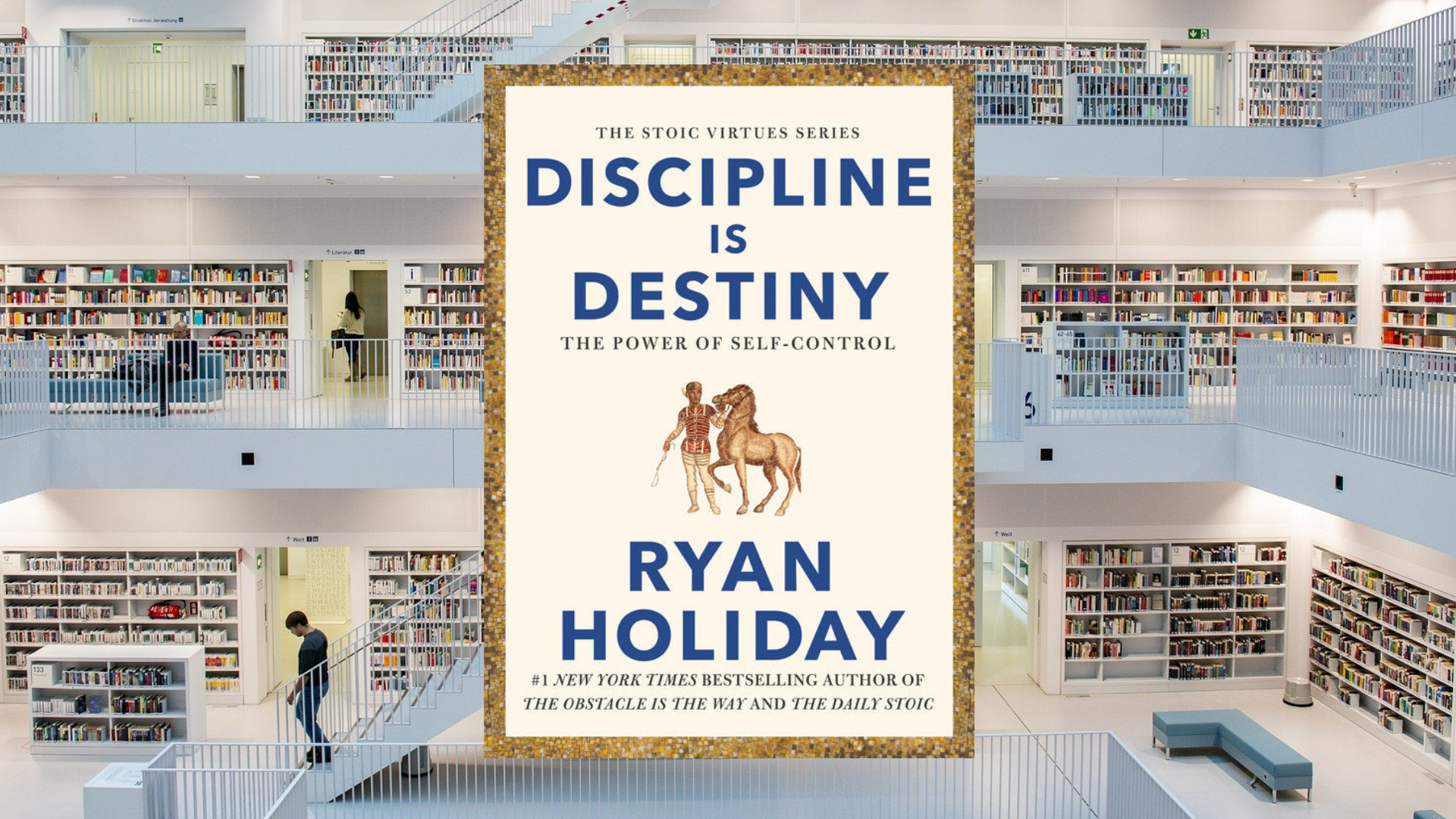
Discipline is Destiny, by Ryan Holiday:
Self-discipline has traditionally been a hard sell. Self-indulgence, quick dopamine hits, and having a good time have been winning the marketing battle lately, similar to the "battle" between chocolate and asparagus. Or between reality television and educational documentaries.
But what if the problem is simply that we've been thinking about self-discipline in entirely the wrong way?
Up until now, self-discipline may have been the equivalent of a Henry James novel in a TikTok world. But Ryan Holiday's book, Discipline is Destiny, will have you reimagining the whole concept in a much more liberating, fulfilling way.
His aim is to teach you how to harness the powers of self-discipline to fulfill your personal destiny. While everyone's destiny is fundamentally different, everyone's destiny is the product of self-discipline. Your habits shape your character, and your character shapes your destiny, and so Ryan's book goes right to the root and gives you the physical, mental, and emotional skillsets for success.
In the final analysis, self-discipline is prescriptive. It will show you your future. Your environment, actions, habits, and mindsets are constantly shaping your destiny, and this book will show you how to guide this process more intelligently.
This involves thinking of self-discipline in the "proper" way: not as a punishment, as self-deprivation, but as it really is: a pathway to even greater freedom.
Some days will be hard. Actually, that's not true...many days will be hard. The hard days will outnumber the easy ones, but the meaningful days will also outnumber the meaningless ones. Living this way won't always be easy, but it will always be worth it.
Sample Quotes from the Book:
“At the core of this idea of self-mastery is an instinctive reaction against anything that masters us. Who can be free when they have lost, as one addiction specialist put it, ‘the freedom to abstain?’”
“Think about it: Most people don’t even show up. Of the people who do, most don’t really push themselves. So to show up and be disciplined about daily improvement? You are the rarest of the rare.”
“The good news is that because it’s hard, most people don’t do it. They don’t show up. They can’t even do one tiny thing a day. So yes, you’re alone, out there on the track in the rain. You’re the only one responding on Christmas. But having the lead is, by definition, a little lonely. This is also why it’s quiet in the morning. You have the opportunities all to yourself.”
Read the Full Breakdown: Discipline is Destiny, by Ryan Holiday
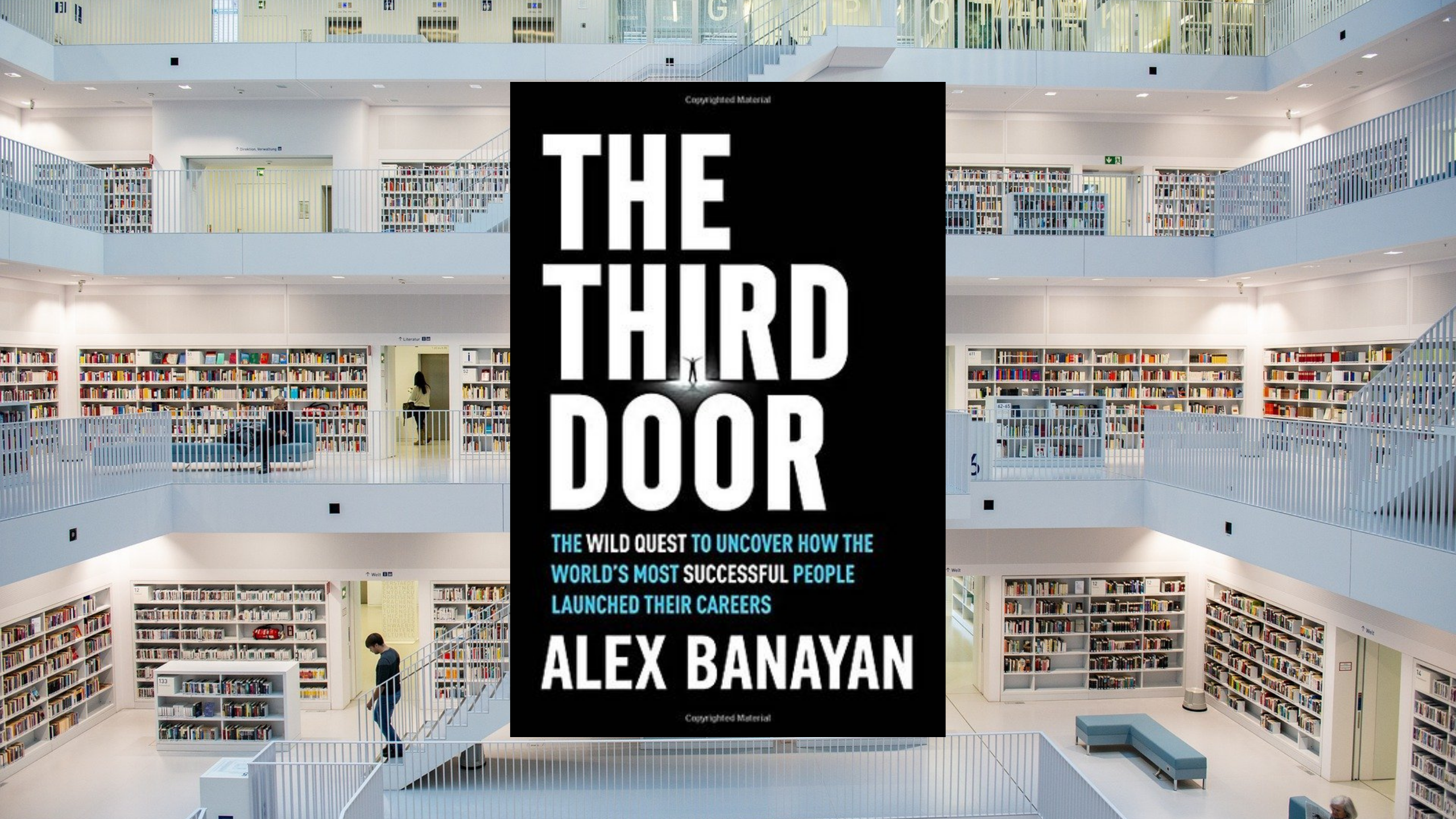
The Third Door, by Alex Banayan:
Some people will read this book and miss the entire point. I guess that’s true with every book, but with The Third Door, it’s very easy to assume that Alex Banayan means to say that success is all about finding shortcuts. This interpretation would be a major mistake, and if you read it this way, you’re wasting your time. If you get what he’s really saying though, this book could change everything for you.
In The Third Door, we have the (literally) incredible true story of this impressionable, 18-year old college kid who felt a predetermined life-path solidifying around him that he didn’t want.
Banayan felt this acutely, and the process of him breaking free of social conditioning and one-hundred-percent pursuing the only life he wanted to live made for one of the most exciting books I read in all of 2020. I love this kid. I love him for what he's done, the outlook that he's developed, his full-hearted vision of true education, and for the crazy courage it required to take some of the risks he took.
The short version (and I'm leaving out many of the things that make this book worth reading) is that instead of taking a critical university exam at the end of the semester of his freshman year, he researched the best way to win at The Price is Right (a popular American game show that was looking for contestants in his area), and hacked his way onto the show, where he won a boat - sold it - and then used those winnings to fund his adventure of trying to track down some of the best business and artistic minds in the world and get them to share their secrets of success.
The Takeaway: Become the kind of person who takes action, who seeks out the best advice and then applies it, who learns from their mistakes but who doesn't shy away from taking a big swing once in a while. And instead of doing what everyone else is doing, or what the "influencers" are doing, find your own way in, whatever that looks like.
Sample Quotes from the Book:
"Life, business, success...it's just like a nightclub. There are always three ways in. There's the First Door: the main entrance, where 99 percent of people wait in line, hoping to get in. The Second Door: the VIP entrance, where the billionaires and celebrities slip through. But what no one tells you is that there is always, always . . . the Third Door. It's the entrance where you have to jump out of line, run down the alley, bang on the door a hundred times, crack open the window, sneak through the kitchen - there's always a way."
“I wanted to meet HIM, more than he DIDN’T want to meet ME.”
"Adventures only happen to the adventurous."
Read the Full Breakdown: The Third Door, by Alex Banayan

The View from the Opposition:
No one's ideas are beyond questioning. In this section, I argue the case for the opposition and raise some points you might wish to evaluate for yourself while reading this book.
#1: More of the Same from Steven Pressfield
This is a common criticism leveled against every one of Pressfield's books since The War of Art: "What's new?!"
I get what they're saying - Pressfield does cover a lot of the same ground in most of his nonfiction books. But, if The War of Art was so phenomenal - and it was - then wouldn't you want more of that?
I'd give up so much to be able to read The War of Art for the first time, and just because he's saying many of the same things just in different ways doesn't mean that you shouldn't read his other books once you've read one of them.
If anything, I'll take all the Turning Pros and Do the Works that I can get.
In a similar way, we all probably have friends that offer us the same encouragement, support, and sage advice all the time, but does that mean that once they've lifted us up once we should go out and get new friends?
"The test of a first-rate intelligence is the ability to hold two opposed ideas in the mind at the same time and still retain the ability to function.”
-F. Scott Fitzgerald

Questions to Stimulate Your Thinking:
The quality of your questions determines the quality of your life. That's also how you get the absolute most out of any book that you decide to read:
You ask great questions the whole time - as though the book was on trial for its life.
Here in this section are a few questions that can help guide and stimulate your thinking, but try to come up with your own additional questions, especially if you decide to read this book the whole way through...
#1: "In your chosen career or medium, where is all the action happening? The biggest players in your industry - where do they live? Where do they congregate? How close can you get to where the action is?"
#2: "Have you ever sought out a mentor? What leads you to believe that they would accept you as a mentee? What do you need to learn, and to whom can you go for advice and direction?"
#3: "How committed are you to achieving your artistic vision? Are you all-in? Or are you unsure right now about how far you want to take this?"
#4: "How BIG is your thinking? Are you staring at the ground, or looking up at the stars? Are you building castles in the sky? Or are you firmly rooted in reality? Can't you do both at the same time?"
#5: "Do you have a non-negotiable routine when it comes to your creative work? Does the Muse know when and where She will be able to find you?"
#6: "What's the 'level' at which you want to create? Is your goal to be named among the best of the best for all time? Or are you doing this for fun and to see where it might lead?"
#7: "Have you ever pushed - really pushed - past your percieved limitations? Were you surprised by the results?"
#8: "What is your definition of 'long-term'? 5 years? 10 years? 50 years? How far into the future are you willing to perform the daily work necessary to reach your goals? Are you willing to put your ass where your heart wants to be for life?"
#9: "Is your work ego-driven? Or is it the natural outpouring of your Self? Would you describe what you do as 'generous'? How does it bring humanity together, and involve us all in the miracle of creation?"
#10: "You've defined your goal, sought out mentors, identified when and where and for how long you're going to hammer out the work, and you know what it's going to take to make your artistic vision a supreme reality - are you willing to pay the price?"
"Judge a man by his questions, rather than by his answers."
-Voltaire

Action Steps:
So you've finished reading. What do you do now?
Reading for pleasure is great, and I wholeheartedly support it. However, I am intensely practical when I'm reading for a particular purpose. I want a result. I want to take what I've learned and apply it to my one and only life to make it better!
Because that's really what the Great Books all say. They all say: "You must change your life!" So here, below, are some suggestions for how you can apply the wisdom found in this breakdown to improve your actual life.
Please commit to taking massive action on this immediately! Acting on what you've learned here today will also help you solidify it in your long-term memory. So there's a double benefit! Let's begin...
#1: Expand Your Vision
Michelangelo said that the tragedy of life is not that we aim too high and fail to meet our expectations, but that we aim too low and do. Thus, the first Action Step here is all about pushing up against the boundaries of your imagination and envisioning more for yourself. That's where most of us need to begin.
Limited thinking and narrow mindsets dash people's dreams before they even begin to set out to achieve them, and even though it's certainly easy to have unrealistic expectations about what's possible for you, Michelangelo's right that most of us are basically staring at the ground.
#2: Identify Where Your Dreams Are Most Likely to Come True
If you want to be in movies, you pretty much have to be in Hollywood. Or at least, you need to know people there, and physically go there at least a few times a year. If you're launching a startup, it's Austin or San Franscisco. That's where all the acti0n is, and where your key guides and mentors are most likely to be.
So, do you know where the biggest names and most influential players in your industry hang out? Have you ever been there? If you showed up there, would you be able to fit in? Would you increase your odds of success?
Depending on your chosen career and your goals, you don't necessarily even have to move out of your city. If you're a realtor, this Action Step just means to identify where all the realtors in your city hang out, who the best ones are, who among them is making the most money and building the strongest relationships, and how you can get into that room.
#3: Make a Promise to Yourself, and Fight to the Death to Fulfill That Promise
One of the most utterly transformational things you can ever do for yourself is to make a commitment, to yourself and for yourself, that you will never, ever, ever let yourself down.
Making a promise to yourself is literally life and death. If you can't trust yourself, who can you trust? If you can't save yourself, who else can? If you don't believe in yourself and what you say, who else will?
#4: Do Your Work, or Nothing
This is a good one: Go to the place where you normally do your creative work. A laptop if you're a writer, say, or a studio if you're a painter, etc. Commit to staying there for at least half an hour, during which time you are only allowed to do either a) your work, or b) nothing. Nothing at all. Sit there in silence, completely still, or get your work done. Those are your two options.
To gain the assistance of "the gods," they need to know where you'll be, and when you're going to be there. Pressfield believes that the Muse rewards commitment and action, and once you begin to move, Providence moves too.
#5: Do It Again Tomorrow
So you banged out your 500 words on the computer today, or you sketched out Act 3, Scene 4 of your screenplay. You should be genuinely (seriously) proud of yourself. You did something heroic, even if it doesn't look that way right now. I'm not just throwing around the word 'heroic' either. You faced down your internal Resistance, you got down to work, and you created something that didn't exist before, and now you're done for the day.
But tomorrow, the work begins anew. You have to face the Resistance all over again...because it will be back. You will again have to Answer the Call.
"The path to success is to take massive, determined action."
-Tony Robbins

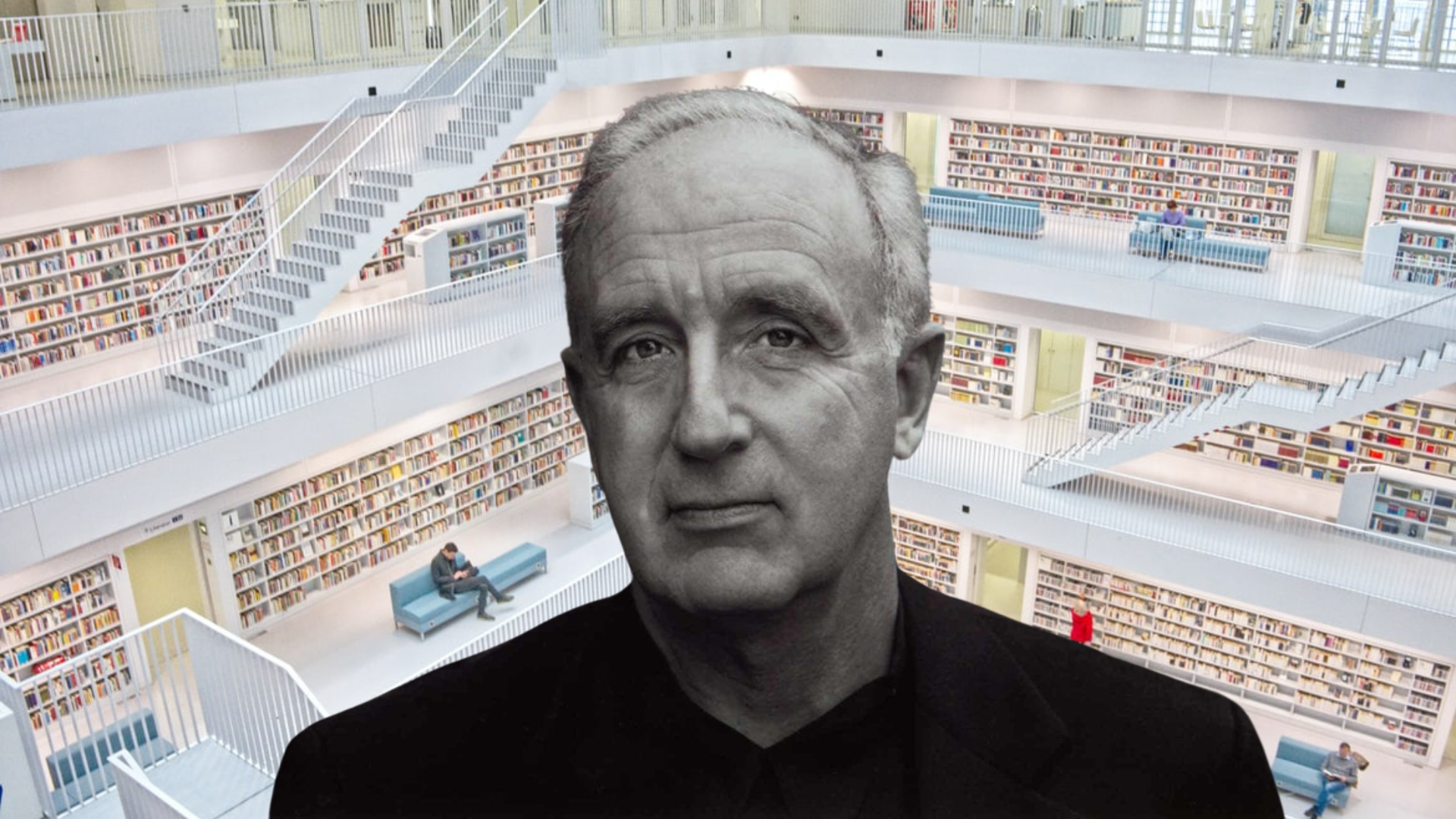
About the Author:
I was born in Port of Spain, Trinidad, in 1943 to a Navy father and mother.
I graduated from Duke University in 1965.
In January of 1966, when I was on the bus leaving Parris Island as a freshly-minted Marine, I looked back and thought there was at least one good thing about this departure. "No matter what happens to me for the rest of my life, no one can ever send me back to this freakin' place again."
Forty years later, to my surprise and gratification, I am far more closely bound to the young men of the Marine Corps and to all other dirt-eating, ground-pounding outfits than I could ever have imagined.
GATES OF FIRE is one reason. Dog-eared paperbacks of this tale of the ancient Spartans have circulated throughout platoons of U.S. troops in Iraq and Afghanistan since the first days of the invasions. E-mails come in by hundreds. GATES OF FIRE is on the Commandant of the Marine Corps' Reading list. It is taught at West Point and Annapolis and at the Marine Corps Basic School at Quantico. TIDES OF WAR is on the curriculum of the Naval War College.
From 2nd Battalion/6th Marines, which calls itself "the Spartans," to ODA 316 of the Special Forces, whose forearms are tattooed with the lambda of Lakedaemon, today's young warriors find a bond to their ancient precursors in the historical narratives of these novels.
My struggles to earn a living as a writer (it took seventeen years to get the first paycheck) are detailed in my 2002 book, THE WAR OF ART.
I have worked as an advertising copywriter, schoolteacher, tractor-trailer driver, bartender, oilfield roustabout and attendant in a mental hospital. I have picked fruit in Washington state and written screenplays in Tinseltown.
With the publication of THE LEGEND OF BAGGER VANCE in 1995, I became a writer of books once and for all.
My writing philosophy is, not surprisingly, a kind of warrior code — internal rather than external — in which the enemy is identified as those forms of self-sabotage that I have labeled "Resistance" with a capital R (in THE WAR OF ART) and the technique for combatting these foes can be described as "turning pro."
I believe in previous lives.
I believe in the Muse.
I believe that books and music exist before they are written and that they are propelled into material being by their own imperative to be born, via the offices of those willing servants of discipline, imagination and inspiration, whom we call artists. My conception of the artist's role is a combination of reverence for the unknowable nature of "where it all comes from" and a no-nonsense, blue-collar demystification of the process by which this mystery is approached. In other words, a paradox.
There's a recurring character in my books named Telamon, a mercenary of ancient days. Telamon doesn't say much. He rarely gets hurt or wounded. And he never seems to age. His view of the profession of arms is a lot like my conception of art and the artist:
"It is one thing to study war, and another to live the warrior's life."
Additional Resources:
Steven Pressfield - Writing Wednesdays
Steven Pressfield - Writing Mastermind
This Book on Amazon:
Put Your Ass Where Your Heart Wants to Be, by Steven Pressfield
If You Liked This Book:
The Artist's Journey, by Steven Pressfield
The War of Art, by Steven Pressfield
Turning Pro, by Steven Pressfield
Do the Work, by Steven Pressfield
The Hero with a Thousand Faces, by Joseph Campbell
The Writing Life, by Annie Dillard
Discipline is Destiny, by Ryan Holiday
The Third Door, by Alex Banayan
